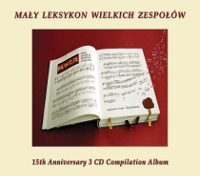One can only imagine what the band were going through when they came together to record this, as it would be the first album without David Longdon. When they were looking for a replacement Nick D’Virgilio and Greg Spawton remembered seeing Alberto Bravin perform with Premiata Forneria Marconi (PFM) and felt he would be a good fit as he had a quite different vocal approach, but no-one quite expected just how well it would work out as he transpired to be a wonderful songwriter (co-writing five of the eight songs) as well as working on the mix with Rob Aubrey. It was the first time the band had recorded together in the same room for some time as opposed to swapping sound files, and all these circumstances combined to create one of the most dynamic albums they have ever released. While I have known BBT for more than 30 years, I have known Dave Foster for nearly as long (reviewing the debut tape of Mr So & So all the way back in 1992), and there are times here when he has been allowed to crank it just that little bit more which gives them a strong rock edge which has been missing in some of their releases in the past.
With a few multi-instrumentalists in the line-up, as well as their brass section and multiple singers, BBT have allowed themselves to really stretch their wings and show why they are now regarded by many as one of our finest progressive bands. There are times when we get throwbacks to classic Genesis, then we get strong feelings of the Sixties, then the more pastoral and Seventies before moving into something far more bombastic. This is an incredibly broad and deep album, all the time allowing Bravin to really shine – his wonderfully clear and melodic vocals are very different to Longdon, and he is majestic in his own right whether he is singing against the whole band, or just a violin, or leading the majestic harmonies.
As well as musically, the band have also made a change in the way they approach the subject matter. Barring a couple of exceptions, its songs are more personal in nature than previously, which often addressed folklore and tales of old Britain with a historical twist, or as Spawton puts it “third person storytelling songs”. “This time,” he qualifies, “we went largely for personal recollections.” There is no doubt that the tragic death of Longdon is the reason for the more insular approach, as everyone reflected on their lives which allows the listener to find words which resonate with them. This is very much an album where it can be played and enjoyed the first time of hearing, but the more one pays close attention the more one realised the impact of the drum fill here, the brass section there, that violin just coming in and out, or the piano replacing the swathes of keyboards. It would have been easy for the band to play it safe with this release, yet somehow, they have pushed themselves to create something which is nothing short of a masterpiece.
The band have been through many different iterations through their career, not just in line-up but in musical approach, and here they are building on the shoulders of giants as they move boldly into the next stage.








